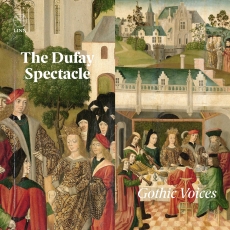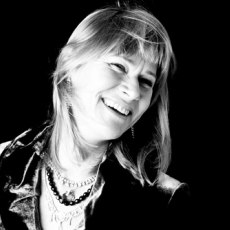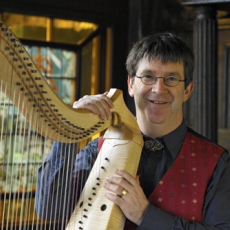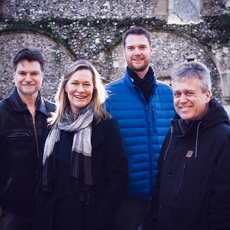Gothic Voices - The Dufay Spectacle - MusicWeb International
Gothic Voices, a somewhat varied group of outstanding singers, going by that name, have been making CDs of medieval music for well over thirty years. For some considerable time, after a good twenty or so discs under Christopher Page, he moved even more deeply into the world of academia. The Hildegard Feather on the Breath of God for Hyperion made, and still makes, a considerable impression. After Page moved on Gothic Voices picked up the pieces, and continued, with Page’s permission, to use the name and made a clean break with Hyperion moving to Linn.
Under Christopher Page it was the policy to sing a capella with just an occasional harp being employed. For their previous discs with Linn the same concept has been adopted but with this beautifully produced CD more instruments have been added, producing a disc of greater colour and variety than in the past and, in a way, making a point that the use of instruments, especially within fifteenth century music seems to work very well.
Some examples: ‘Je require a tous amoureux’ is given us by Catherine King with Andrew Lawrence King accompanying on the harp. The motet ‘Vasilissa, ergo gaude’ even includes a vihuela, an organ, a doucaine and a sackbut – a goodly noise. And I have never heard Gothic Voices sound anything like the three energetic male voices accompanied by an almost raucous regal in ‘Je me complains piteusement’. Oddly enough Dufay’s moving setting of Petrarch’s poem ‘Vergene Belle’ is performed a capella. This works very well and is preferable I feel to other groups who use a voice on the top line with instruments on the other two except for part of verse two when a portion of text is used as a signal for a tenor voice to suddenly appear. A more usual Gothic Voice performance is heard in ‘Las, que feray’ with the top part texted and the lower two vocalising.
But one way in which this disc matches all of the earlier ones is that there is a theme, an overall concept. Perhaps some of you recall their older recordings, such as The Castle of Fair Welcome, or the more recent The Unknown Lover – concentrating on the composer Solage. Here it’s an imaginary wedding celebration of about 1470 or so and it takes place of New Year’s Day. Guillaume Dufay is imagined to be guest of honour. At that time according to David Fallows (Dufay-The Master Musicians – Dent 1982) Dufay was working back at Cambrai Cathedral and had just composed his sublime Missa Ave Regina caelorum.
My immediate thoughts are about how would he have regarded, fifty years, on his utterly stylistically different and early (rather in the style of Ciconia) isorthymic motet like ‘Vasillissa ergo gaude’, (1420) but that was, it seems, composed for a wedding, of one of the Malatesta family so one can see why it is included here. The only distinctly wedding song is ‘Resveillés vous et faites chiere lye’, which actually names the couple in strongly projected chords – Carlo Malatesta II and Victoria Colonna.
It’s also difficult to see how the isorthymic motet ‘Ecclesiae militantis’ written in honour of the Coronation of Pope Eugenius IV in 1431 stands up in this company.
As if to strongly emphasis the New Year celebration each of the four sections is prefixed by a brief statement of the melody of Dufay’s ‘Ce jour de l’an’ either vocally or instrumentally and then as a grand finale, all guns blazing, when the full ensemble perform the entire work with a sackbut even adding a vivid pedal point. What would Christopher Page make of this?
On a really positive note I hadn’t realised what a beautiful song ‘Mon bien, m’amour’ actually is until I heard it from the three men of the group and ‘Estrimez moy, je vous estrineray’ is quite delightful, it being a conversational love song for New Year’s Day, Catherine King and Steven Harrold sounding young and innocent. On the other hand I have to say that the canonic drinking song ‘Puisque vous estez campier’ sounds a bit too polite.
I’m attracted to the idea that some pieces, entablatures, from the Buxheimer Orgelbuch using Dufay’s popular ‘Se la face e pale’, which are normally heard only played by a keyboard are here divided between the medieval fiddle on the upper, heavily ornamented line and the organ played by the versatile Andrew Lawrence-King. It makes the pieces clearer in texture and of more interest.
So this beautifully illustrated and presented disc with texts clearly set out and with a short but useful essay in a booklet tucked inside its cardboard cover represents a new stage in the development of Gothic Voices. It’s hard not to see Andrew Lawrence King’s influence considering other recordings he has been involved with, although the notes are by the singer Julian Podger. And I for one welcome their new direction and look foreword to see where it will next lead them.



